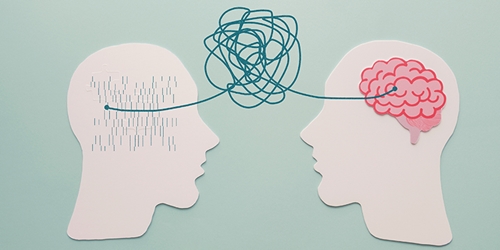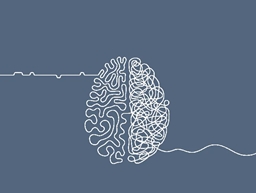|
Demystifying And Deconstructing Brain
Decoding BrainDeconstructing and demystifying the brain with psychotherapy involves helping individuals better understand their thoughts, emotions, and behaviors, and how they relate to the functioning of the brain. It can be a valuable aspect of psychotherapy, especially in addressing mental health issues. Here's how psychotherapy can contribute to this process: 1.) Education: Psychotherapy often begins with education about the brain's basic structure and functions. This can include explaining the role of different brain regions, neurotransmitters, and their influence on mood and behavior. This knowledge empowers individuals to make more informed choices and reduces fear or stigma associated with mental health issues. 2.) Identifying Thought Patterns: Cognitive-behavioral therapy (CBT) is one of the most widely used forms of psychotherapy that helps individuals identify and challenge negative thought patterns. By recognizing distorted or irrational thoughts, clients can learn how these thoughts impact their emotions and behaviors, shedding light on the brain's role in generating and interpreting thoughts. 3.) Understanding Emotional Responses: Psychotherapy helps individuals understand the connection between their emotional responses and brain processes. For example, learning how the amygdala is involved in processing emotions like fear and anger can help individuals manage these emotions more effectively. 4.) Exploring Past Experiences: Psychodynamic therapy often involves delving into past experiences and relationships to uncover unconscious patterns that may be influencing current thoughts and behaviors. This process can reveal how early life experiences have shaped the brain's neural pathways. 5.) Mindfulness and Self-Awareness: Mindfulness-based therapies, such as Mindfulness-Based Stress Reduction (MBSR) and Mindfulness-Based Cognitive Therapy (MBCT), teach individuals to observe their thoughts and emotions without judgment. This practice can enhance self-awareness and reveal the brain's role in generating and processing thoughts and emotions. 6.) Neuroplasticity: Psychotherapy can emphasize the brain's capacity for change, known as neuroplasticity. This concept helps individuals understand that they can develop new thought patterns and coping strategies through therapy and practice, leading to positive changes in the brain. 7.) Emotion Regulation: Many forms of therapy, such as dialectical behavior therapy (DBT), teach techniques for emotion regulation. These strategies are based on the brain's ability to adapt and rewire neural circuits, allowing individuals to manage intense emotions more effectively. 8.) Feedback Loop: Psychotherapy often establishes a feedback loop between thoughts, emotions, and behaviors. Clients learn that their thoughts can influence emotions and behaviors, which, in turn, can shape thoughts. Understanding this loop helps individuals gain control over their reactions and decisions. 9.) Reducing Stigma: Demystifying the brain through psychotherapy can reduce the stigma associated with mental health issues. When individuals realize that mental health challenges are rooted in brain function, they are more likely to seek help and view these challenges as treatable medical conditions. In essence, psychotherapy can help individuals deconstruct and demystify the brain by providing them with knowledge, self-awareness, and practical tools to better understand and manage their thoughts, emotions, and behaviors within the context of brain functioning. This process can be empowering and transformative in the journey toward improved mental health and well-being. |





